From Yirga Alem in Ethiopia, we start our journey south towards Gedeb. We are excited and anticipating this because it has been far too long since we visited Alemayehu Daniel. We met him and his siblings five years ago. It is a highlight for baristas and customers every year when we offer the fresh harvest of Miju again on the second grinder and in the season lot.
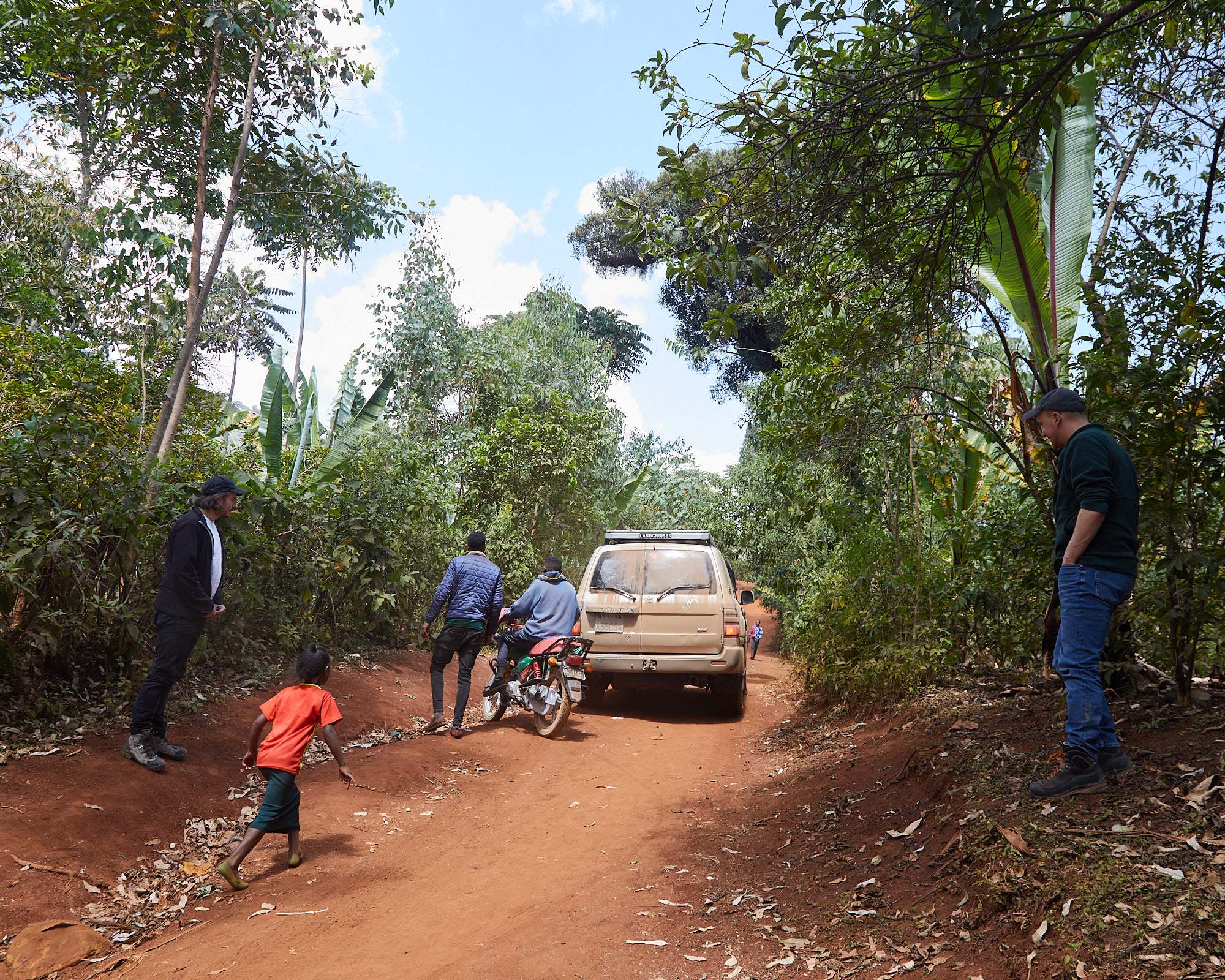
Shortly before the town of Gedeb, we stop in a hamlet. A young man in a green velvet jumper with traditional Ethiopian embroidery identifies himself as the younger brother of Alemayehu Daniel. He leads us on a motorbike over dry, dusty roads through the forests of the Ethiopian plateau until we come to a long wooden fence flanking the road on the left. We learn that an uncle’s funeral is at the same time as our visit, so we don’t get to see all the brothers. Nevertheless, we are all the more honoured to be able to visit them on this day.
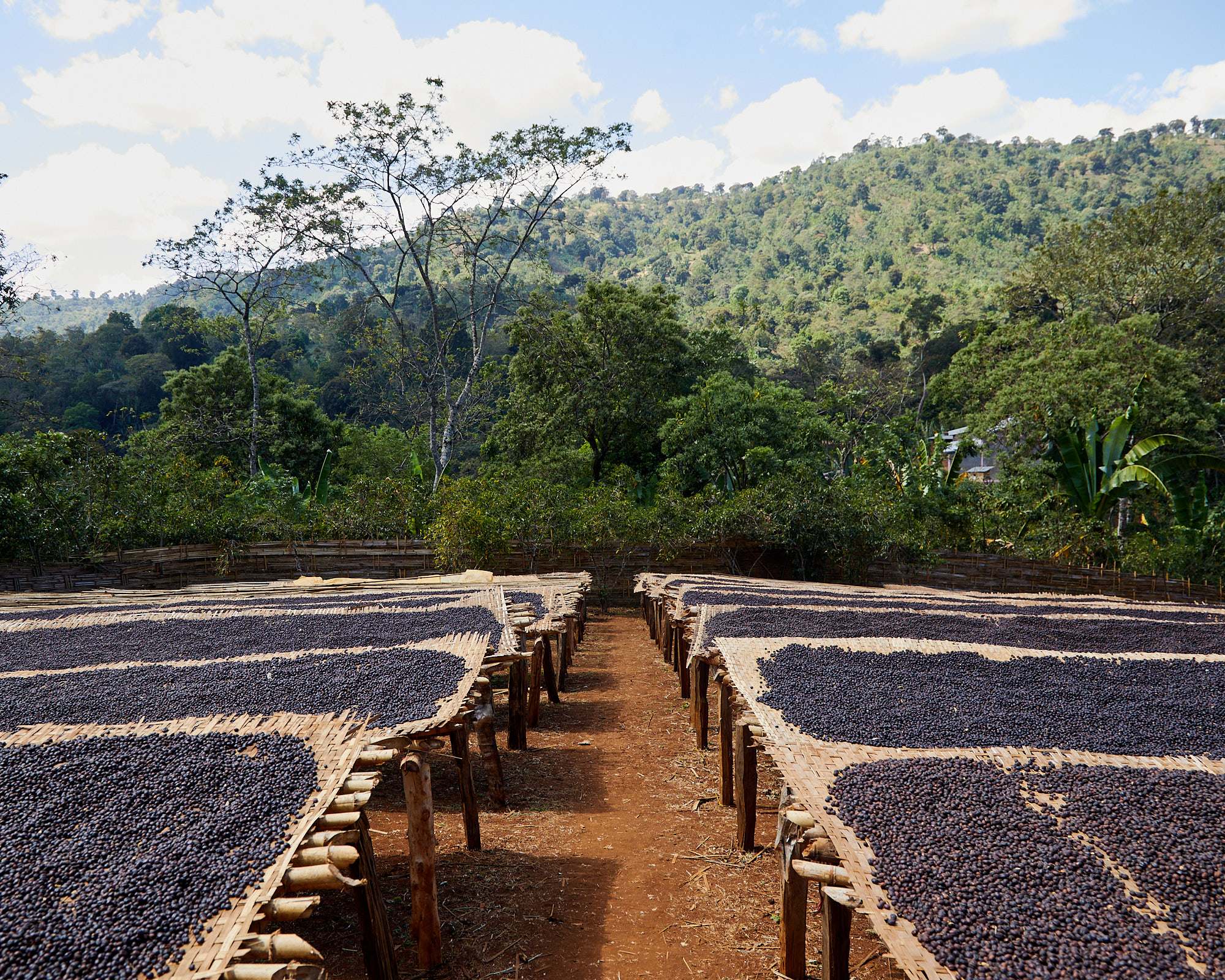
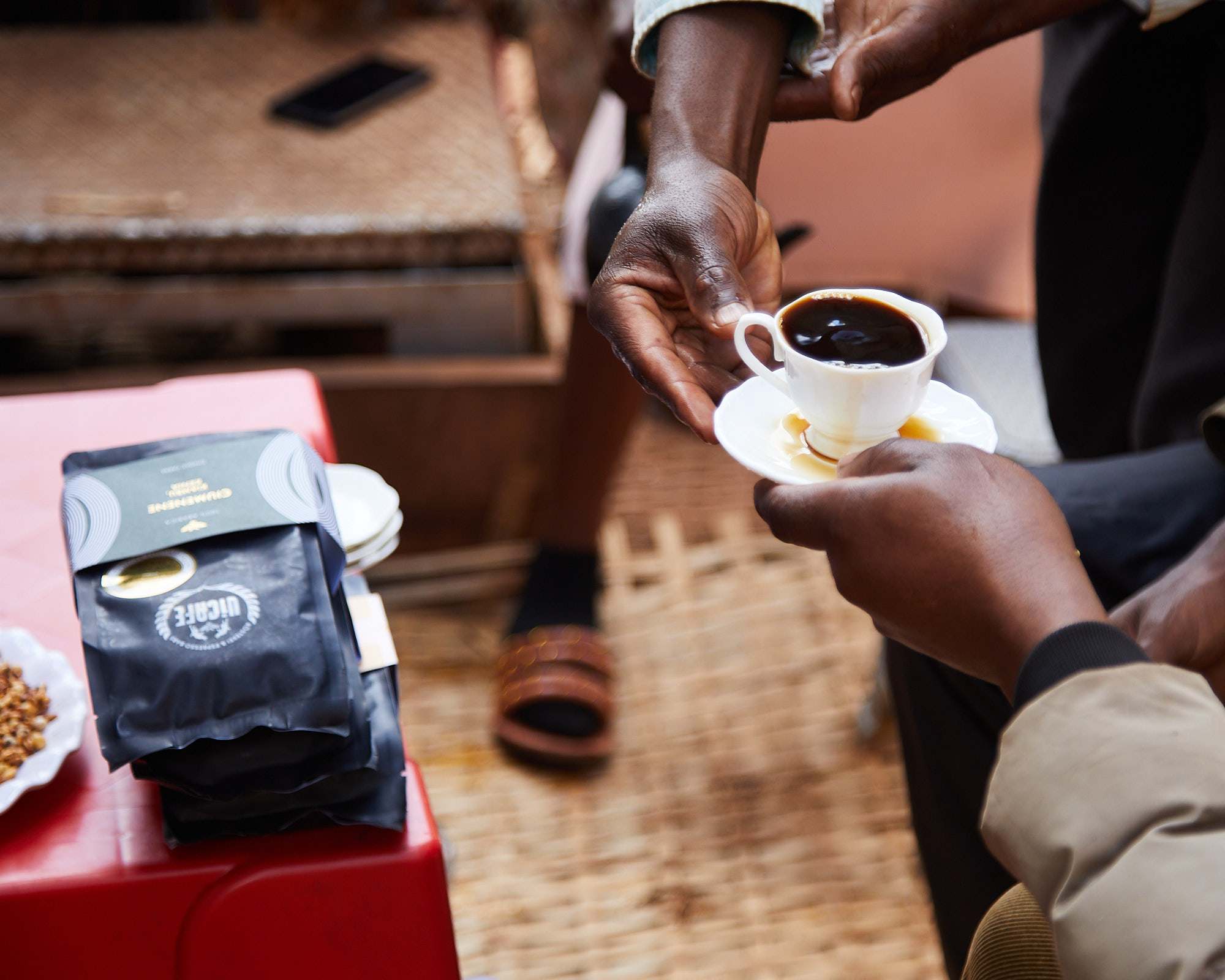
We receive a warm and curious welcome. At the Drying Beds, where the cherries have already been drying for a few days, there follows a round of introductions on colourful garden chairs, which always provide us with a spontaneous seat during meetings outside – either in the shade of the trees or in front of houses.
We report on our part of the coffee value chain and hand over our final product to the family: roasted coffee packaged and enclosed in yellow and gold Miju banderole. We also present the ViCAFE plaque, which we proudly present to our most loyal coffee partners. The lengthy exchange is accompanied by several cups of coffee, which is classically first roasted on charcoal, then ground by hand and brewed in the jebena, the Ethiopian coffee pot.
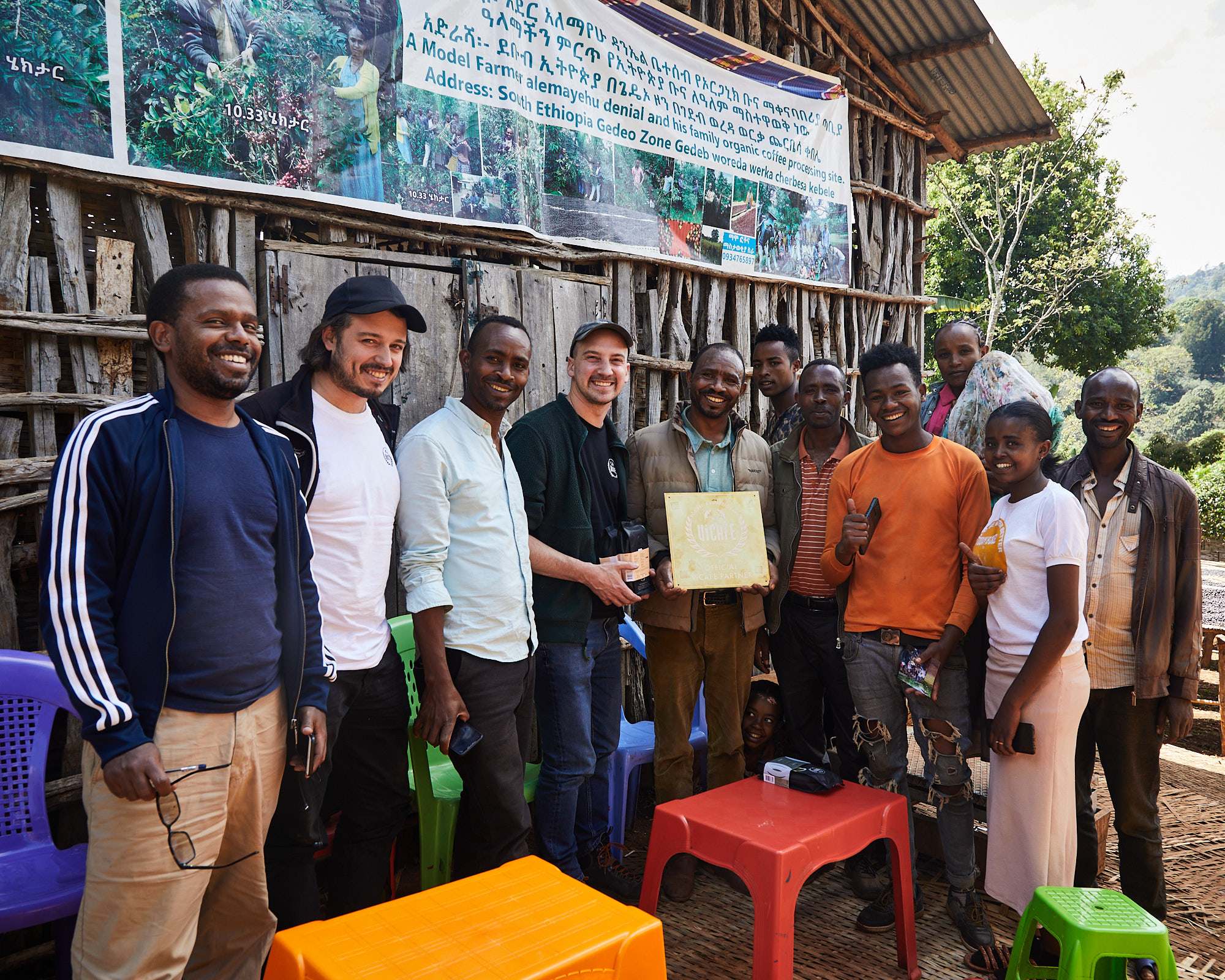
We get up and walk through the drybeds. Covering up against the cold at night (we are 2050 metres above sea level) is difficult for coffee farmers because there is no artificial light at night. We continue again along the wooden fence and enter the coffee plantation between the tool sheds and the residential houses.
We are proudly shown how they take care of their plants, cut them back, where they grow the seedlings, which are then planted together with their compost. After 2-3 years, the plants will yield enough. Here, harvesting takes place once a year. However, this drags on for several weeks, as not all cherries are ripe on command – it takes several harvesting passes to guarantee consistently high quality. After that, the cherries dry on the raised beds where we sat. After the harvest is before the harvest and the trees are cared for and pruned back, the shoots are selected and the height of the trees is also kept so that they can be harvested at their height. In addition, the top bouquet of cherries tells us, Alemayehu tells us, when the fruitful life of the coffee tree ends. When the cherries become smaller and fewer, the trained eye knows that the tree’s twilight years have come.
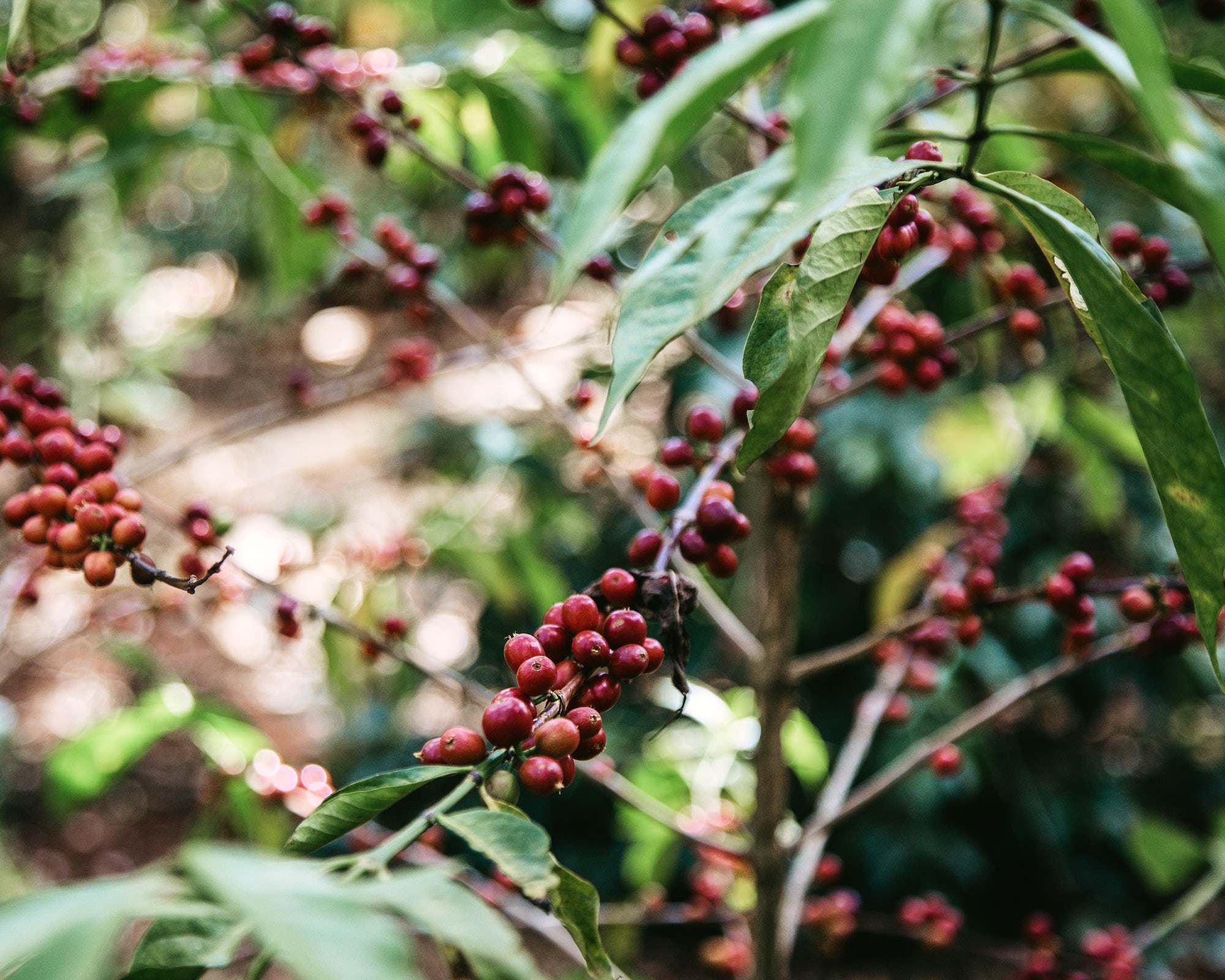
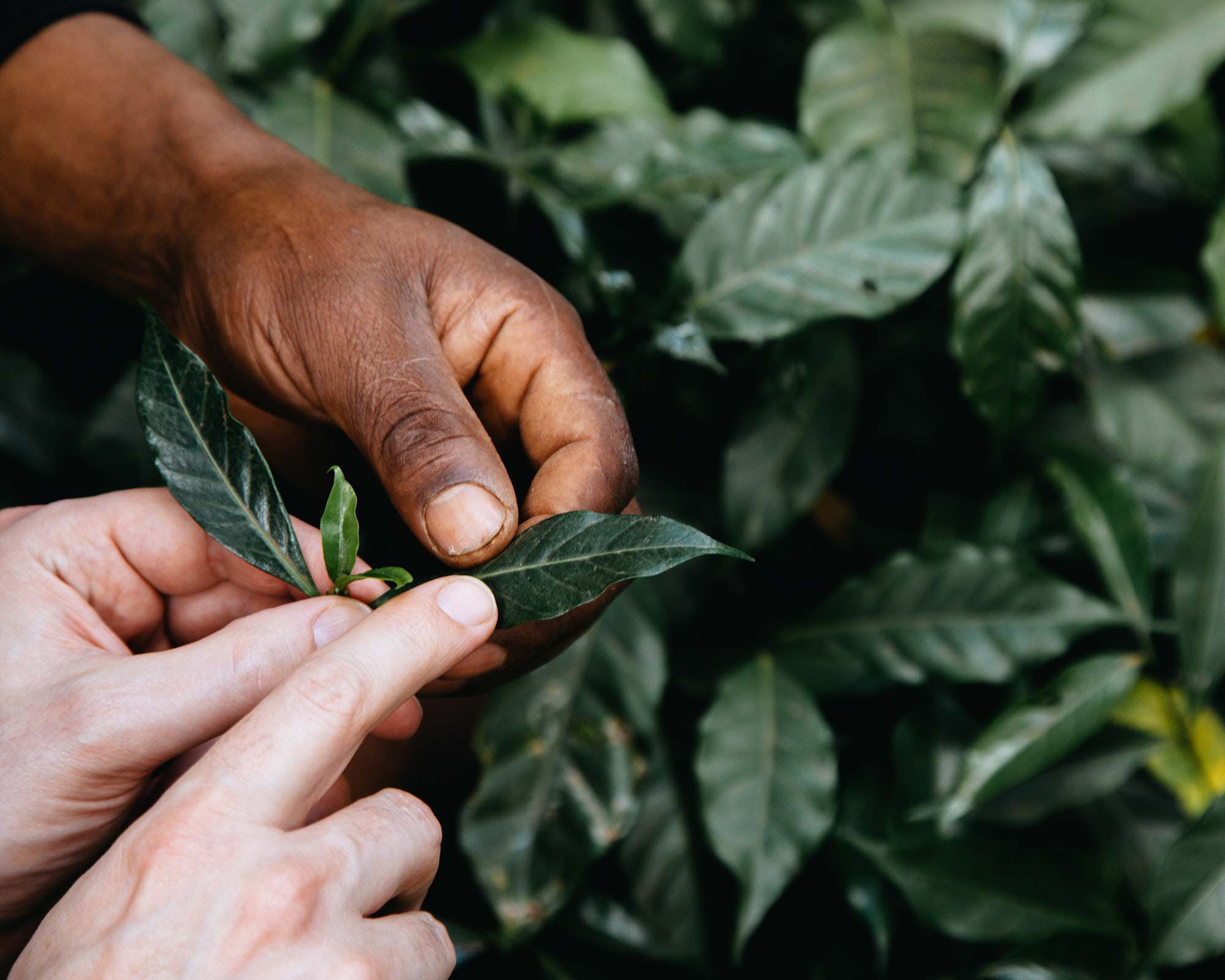
Again under a tree and on the plastic garden chairs, we discuss our further cooperation and the challenges. Pursuing good quality results in a better yield for the farmers, with which they can provide their children with an education at a public school. The path of a good education leads to the city, where living conditions are better and economic advancement is closer. At the moment, Alemayehu is focusing on that, on the one hand, and the other hand, on ways to clean water: The nearest clean water source is a walk away from the farm.
Further, Alemayehu points out that they lack proper protective clothing for forestry work. Supporting these causes is a matter close to our hearts. However, we have more power to act with the new ViFOUNDATION (1) behind us.
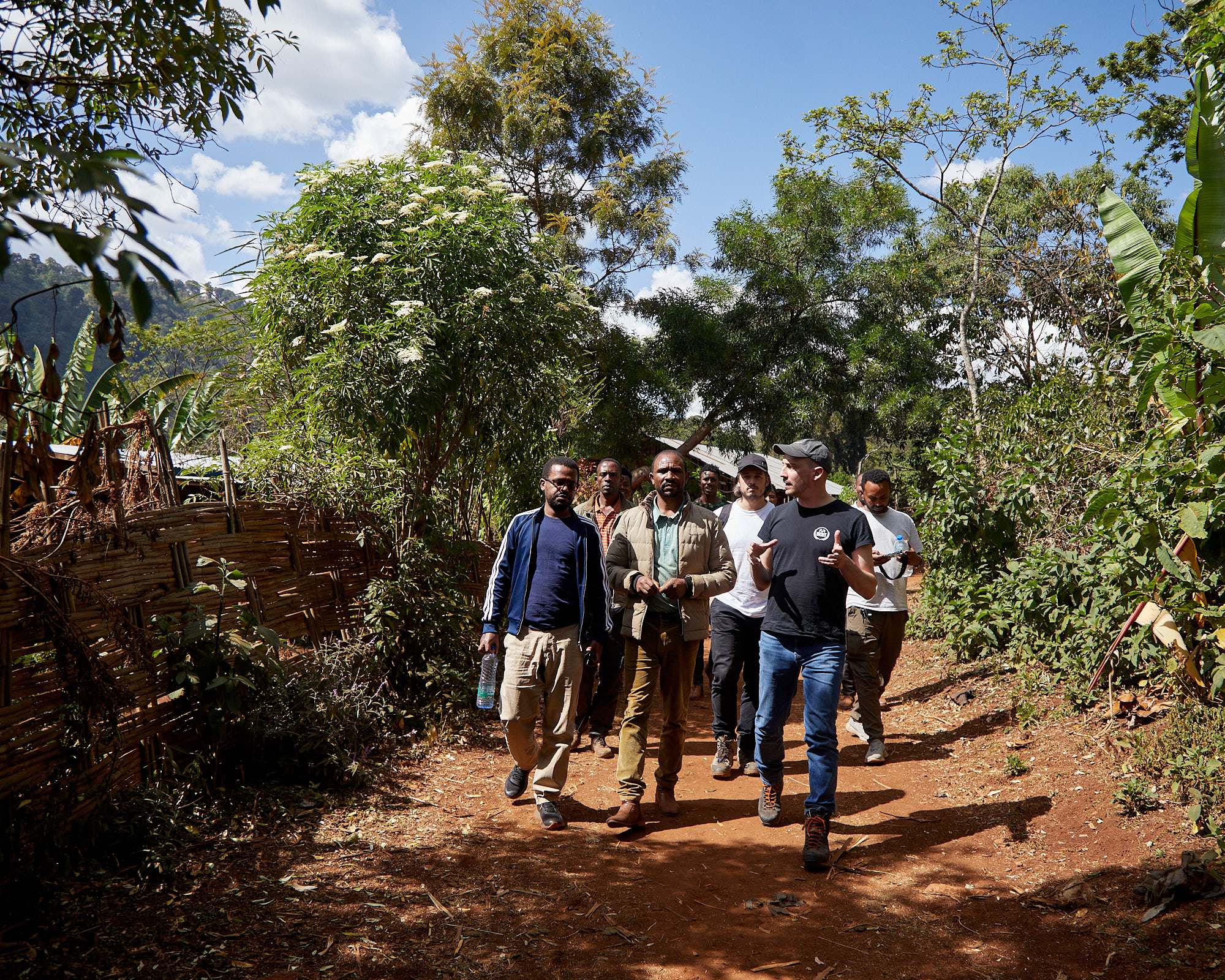
We leave the farm with many new impressions. However, we know there is still much to organise before the green coffee arrives at our roastery in Zurich. The coffee farmer in Ethiopia can sell his dried or freshly picked coffee beans either to an Akrabi, an Ethiopian licensed coffee trader or to a cooperative. Both buyers process the coffee cherries in their wet mill and dry the beans in their drying spaces. In our case, the coffee then goes north to Addis Ababa, where it is cleaned, selected and packed in a dry mill by the Union or – in the case of the Akrabi – a private exporter for shipment to Djibouti.
Then it’s through the Suez Canal into the Mediterranean, along the north coast of Africa past the narrows of Gibraltar to the ports of Rotterdam, down the Rhine into the port basin of Basel and then the last few kilometres overland to Zurich Altstetten to our roastery.
1The ViFOUNDATION is a Swiss foundation established on 15.11.2021 with a domicile in 8193 Eglisau. “The overall purpose of the ViFOUNDATION Foundation is to improve the living conditions of agricultural coffee producers and producers of other agricultural products that have a coffee connection…” Source: https://www.fundraiso.ch/sponsor/vifoundation
